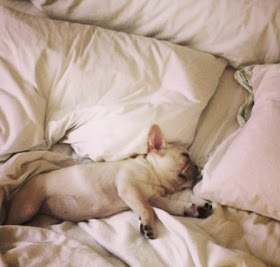Living life to the fullest is a challenge when you just feel so darn tired. Especially as the year comes to an end, we all are struggling to get out of bed in the morning, dream of day-time naps and fall into bed before your Nanna even hits the hay. Sufficient sleep is essential to our health and wellbeing and lack of adequate rest can cause depression, weight gain, and a lowered immune system.
Apart from staying up all night watching Real Housewives re-runs, there might be some less obvious reasons for your sleepiness. Read five reasons that might explain your zombie state:
1. Caffeine
Many of us rely on a caffeine hit to wake up in the morning but it may be the reason you are so tired. Caffeine should be consumed no closer than eight hours before bed time for optimal rest, this includes pre-workout drinks, energy drinks and some teas. Limit this stimulant to the first half of the day and to one caffeinated beverage.
2. Alcohol
A glass of wine can certainly help you unwind at the end of the day but despite it's relaxing effect, drinking can disrupt sleep. While booze may help you to fall asleep, it can cause frequent waking during the night and prevent REM sleep, which is the deep, most restful sleeping state. Without REM, you will wake exhausted even after a decent night's rest. Keep the working week alcohol free and stick to no more than two drinks (unless you can afford an uninterrupted sleep in).
3. Stress
Stress and anxiety will prevent you from falling asleep with worrying thoughts causing you to toss and turn throughout the night. If you have something on your mind, it is suggested to get up and write the thoughts down to deal with the next day. Remind yourself there is nothing you can do about the issue in that moment and go back to bed with a clear mind.
If you suffer from anxiety, your body will be too highly charged and alert to let you get sufficient rest. To shut down your body's anxiety response, try meditating for 20 - 30 minutes earlier in the day, and meditate before you get into bed. Try the
headspace app if you are not sure where to start. Long walks and yoga can also help to calm your mind.
4. Tummy Troubles
A stomach ache or acid reflux issues can affect your shut eye and keep you awake. Avoid large meals before bedtime, eating at least 2.5 hours before you get into bed and keep your dinner relatively low in fat to ease digestion. Acidic tomato-based foods can trigger reflux and are best avoided if you suffer from heartburn. Skip desserts high in sugar and go for a skinny sweet recipe or small bowl of plain yoghurt. Try sipping peppermint tea to aid in digestion before sleep.
5. Light and Temperature
If you are too cold or too hot, you will wake up frequently as your body tries to adjust to changes in temperature. Keep your bedroom well ventilated and cool, as your body temperature will rise as you sleep. Make sure the lights are dim when you are getting ready for bed and if possible, wake up through natural light. Melatonin is a hormone that sends you to sleep and this increases when the brain perceives that it is night. When it’s daylight, melatonin is shut down and we wake up.


